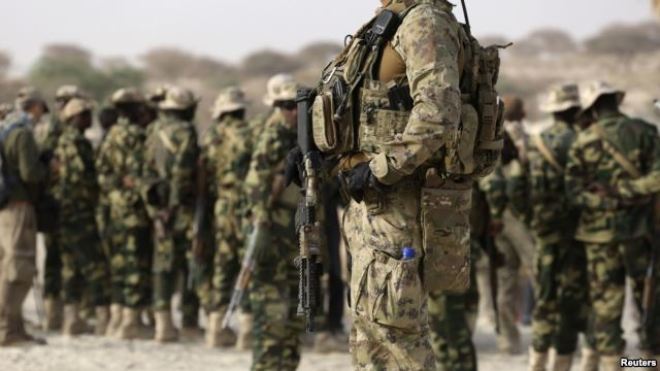The terror never stops in the war on terror

Thursday March 10, 2016

ON SATURDAY, the US killed 150 human beings in an air strike. The human beings were killed at an al-Shabaab training facility, Raso Camp, in Somalia. Pentagon press secretary Peter Cook described the attack, which used both manned and unmanned aircraft, as an attack "in self-defence and in defence of our African Union (AU) Mission in Somalia … partners".
It was alleged that those attacked at the training camp posed an imminent threat to US and AU forces. This is presumably the legitimating feature for the claims of "self-defence". But the Intercept’s Glenn Greenwald has noted pointedly that there has been little evidence provided of impending attacks, nor media efforts to push for this information.
While acknowledging the attack, al-Shabaab has argued that the number of fatalities is overstated by the US.
This attack comes against the backdrop of a rapid US military expansion in Africa that includes the building of military bases, expanded military operations, drone strikes, and plans under way for a war in Libya, with a view to tackling Islamic State.
The absence of questions surrounding the attack speaks to a policy framework that has been designed to erode accountability.
On the one hand, as Greenwald notes, US counter-terror policy, specifically concerning drone strikes, has morphed in ways that allow for a reconceptualised notion of enemy or militant, to include "all military-age males in a strike zone as combatants".
The grave circular logic of this is that strikes are justified because they are targeting combatants, and all those killed are deemed combatants. It is a way of thinking that criminalises the dead for the crimes of their perpetrators.
Moreover, to date there have been no US government-issued records of those killed in drone strikes, amid multiple reports of brutal attacks against civilians. Indeed, an Intercept report suggests 90% of those killed in Afghanistan were not the intended targets.
On Monday, for the first time, the US announced that it would release a report, detailing those killed outside conventional war zones.
While the reporting programme to be introduced will likely shed light, the absence of it to date speaks volumes on the absence of accountability in-built into the systems of the war on terror.
Profoundly, when the US conducts strikes on targets in Somalia, the zone of consequence is removed from the instigator of it. Bashir Dhure, an eyewitness to the attack, noted: "I was lucky as I fled from the area before they started the search operation, because I knew that there would be a harsh backlash by al-Shabaab after they were bombed by the Americans."
The benefit for the US, in this type of operation, is that with limited troop presence on the ground, and the inclusion of unmanned airpower, there is little consequence in terms of direct US casualties. The consequences are thus for those who must pick up the pieces, those who must deal with the blowback, the vengeance attacks, the retaliation, the continued horrifying terrorist attacks, whose incidence does not seem to be stymied, but rather bolstered by increased imperial militarism.
What does it mean to announce that you have killed 150 human beings? What does it say when human lives are so easily expendable? As I have argued before, the war on terror is pernicious. It uses rhetorical flush to designate humans as enemy, to erode their humanity, to designate to the US and its global allies the power to erase life on account of nomenclature, to erode worthiness, and life, in the name of a war whose end goal is ever morphing, whose quest is liquid, whose legitimacy is nonexistent, but whose existence is used to legitimise killing.
